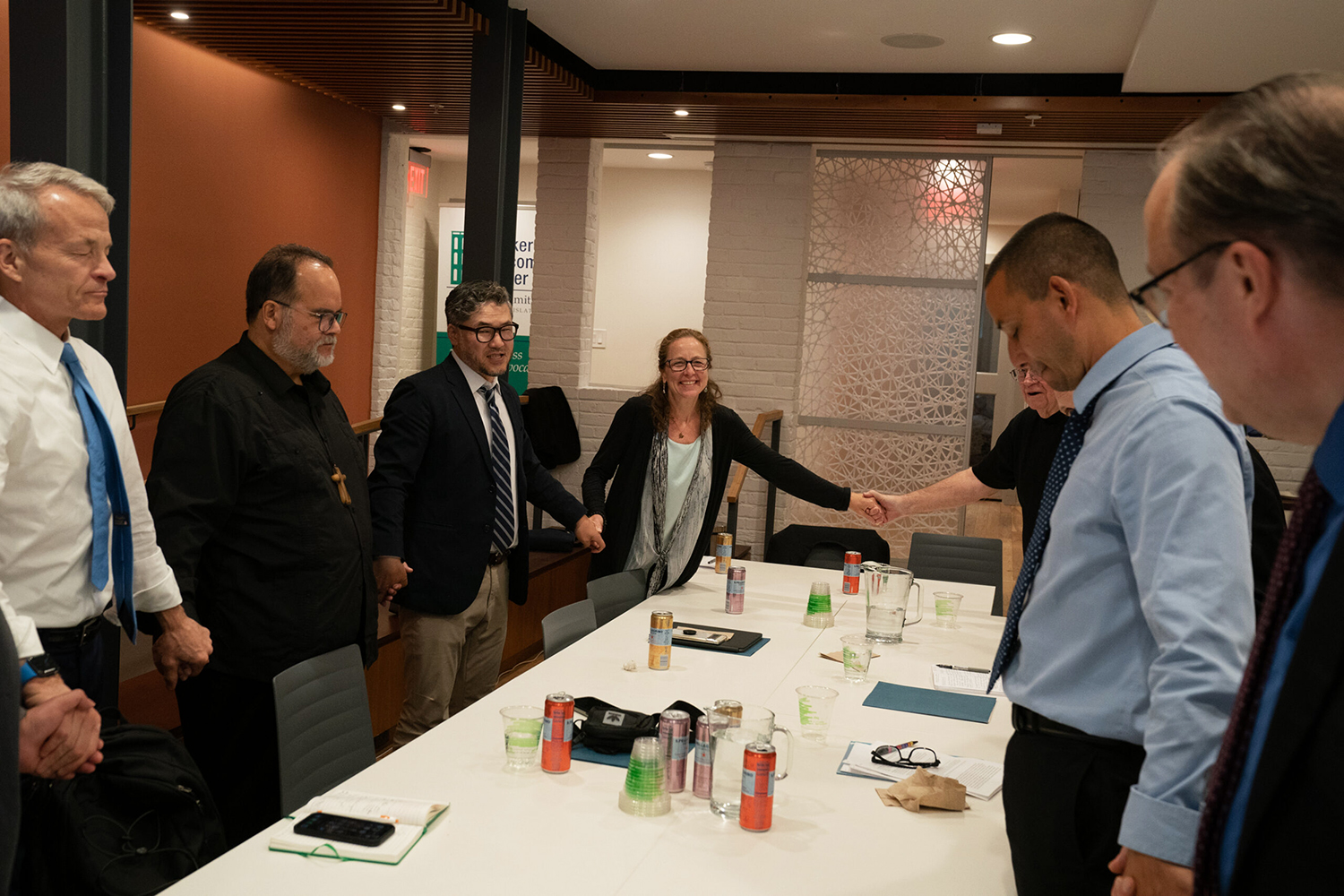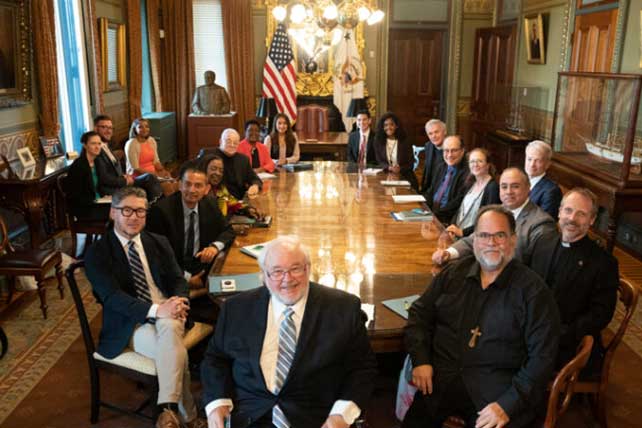The new statement is accompanied by “Anti-Racism Educational Resources for Local Churches,” a seven-page list of study guides, activities, videos and reading lists that the leaders say could “help individuals and groups deepen their understanding of racial injustice and engage in practices of healing and wholeness.”

A small group of Circle of Protection leaders stands together for a time of prayer and reflection at the end of the day of advocacy on June 6, 2023, at the White House, Senate and House of Representatives. Photo courtesy of Circle of Protection
Although the list includes some more well-known resources — such as the Episcopal Church’s “Sacred Ground” film and reading series or the U.S. Conference of Catholic Bishops’ “Intercultural Competencies” pastoral guide — they may be new to other organizations and congregations, Williams-Skinner said.
She hopes the statement signatories will go beyond affirming the statement to determine what steps they can take with their organizations and staffs to move closer to the goals of their declaration.
“Are we meeting at least a minimum level of reflecting the core values of our faith of caring for our neighbor, of building bridges across every divide, of looking out for the vulnerable?” she asked. “If we’re not doing that, then we should stop calling ourselves Christians.”
This article originally appeared here.

